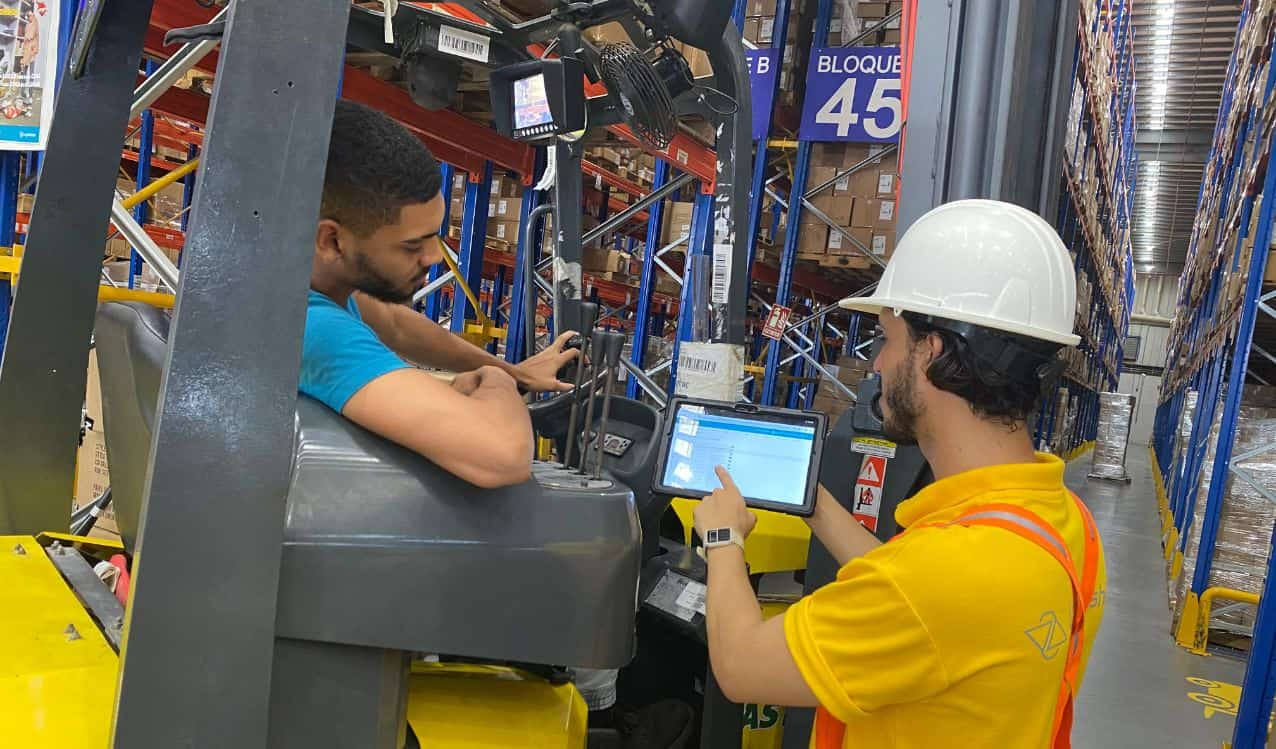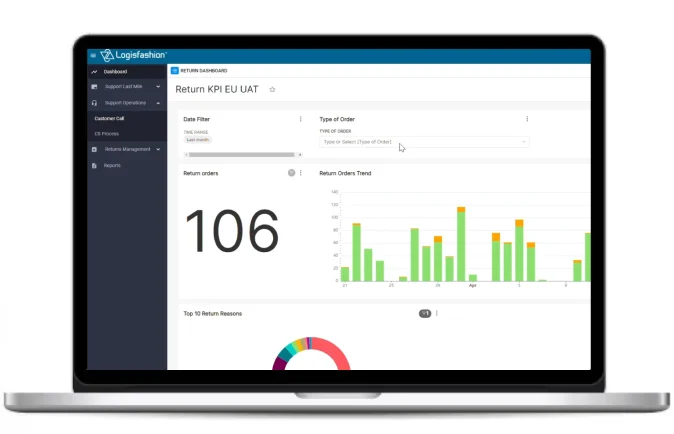LEARN MORE ABOUT THE PROCESSES A LOGISTICS OPERATOR ENGAGES IN
How does logistics work in the retail sector?
Logistics and retail enjoy a bond that is as necessary as it is decisive. When all is said and done, no store can be successful if it does not properly streamline the handling of its supply chain. Consequently, the lofty demands that logistics suppliers must overcome grow unceasingly.
It is no secret that retail firms (supermarkets, pharmacies, boutiques, department stores etc.) need to adapt their supply to demand undergoing constant change, having to do so at a breakneck pace. Faced with a such a demanding and fickle backdrop, streamlining logistics management entails a crucial strategy for the sector.
Logistics is entrusted with handling all the operations that comprise the supply chain of a retail sector enterprise. Therefore, its smooth running and ability to adapt will determine whether the goods sold

Which issues define logistics in the retail sector?
As with the companies that it serves, logistics in the retail sector has undergone widespread evolution over recent years. The wide range of functions undertaken by logistics operators has become much more complex and interlinked, finally adopting skills that were hitherto the realm of manufacturers.
- Overseeing product acquisition: this involves receiving the goods from suppliers or manufacturers. It also entails performing quality control checks on occasion.
- Overseeing stocks: the goods procured must be stored or inventoried in the most efficient manner possible. It will be the logistics operator’s duty to keep finely tuned stocks.
- Readying the orders: as the stores place their orders, a heterogenous set of activities are performed that allow for the products to be primed, and which can include activities such as personalization, fitting of alarms, ironing, labelling and consolidating the goods for delivery to the stores.
- VAS (Value Added Service) Operations: the companies spearheading the 3PL logistics sector are renowned for offering services that go beyond logistics operations in the strictest sense of the word. With regard to these, we have the garment reconditioning, verification and quality control checks plus product ironing, hanging, labelling, amongst other aspects.
- Goods distribution: this refers to the transportation and delivery of the same from the warehouse facilities to the stores, post the process of reconditioning and preparation of the collections. Garments for the fashion and lifestyle sectors can be dispatched, folded or placed on hangers (hung garments) to be able to place them more easily in the stores.
- Overseeing reverse logistics: finally, it is the task of logistics in the retail sector to efficiently handle returns after each sales campaign.
TECNOLOGÍA
Challenges of logistics in retail
Prioritize sustainability
Given society’s growing concern about the environment, it is clear that retail logistics must firmly commit to sustainability. This includes the implementation of good practices such as the reuse of pallets or the optimization of the layout. Of course, having a logistics partner endorsed by LEED certification will be very positive for the branding of the retailers that work with it.
Satisfy a buyer who demands excellence
The circumstances of today’s society have brought great growth in electronic commerce. With this, an exponential growth in consumer expectations regarding logistics services. Shopper forbearance towards errors has been reduced to a minimum, which has considerably stressed the task of managing the supply chain in retail.
Take advantage of technological innovations
IoT, AI, WMS, machine learning… knowing how to adapt and squeeze the potential of new technologies has become key in retail logistics. Certainly, its implementation provides opportunities capable of significantly improving the efficiency of the supply chain (speed up delivery times, reduce human errors, optimize warehouse space, etc.
Address the growing complexity of the sector
It is easy to see that, in recent years, the retail supply chain has become more complex. Thus, it is already common for many retailers to collaborate with several external partners. Obviously, the more links involved in the supply chain, the more difficult it will be to detect possible incidents in time.
Nowadays it is very common for the same store to use multiple online and offline sales channels. This omnichannel adds new challenges in terms of synchronizing logistics operations and stock control.
Adapt to a challenging offer
The products handled by the retail sector present certain singularities that can make logistics operations difficult. These characteristics are especially felt in sectors such as food and fashion.
- Seasonality. Experiencing high peaks in demand is very common in the retail sector.
- Consequently. logistics operators must respond quickly to these increases so that products are always available.
- High rotation. Whether due to expiration or fashion, the life cycle of goods sold in retail stores is usually very short. Therefore, inventory rotation should not lag behind, otherwise products will become outdated.
- Variety. Most retailers sell a heterogeneous catalog of products, which requires great flexibility on the part of their logistics partners.
In view of all these challenges, it is logical that the outsourcing of logistics in the retail sector becomes more and more common. Ultimately, entrusting these functions to a specialized partner translates into a clear competitive advantage for retailers.





